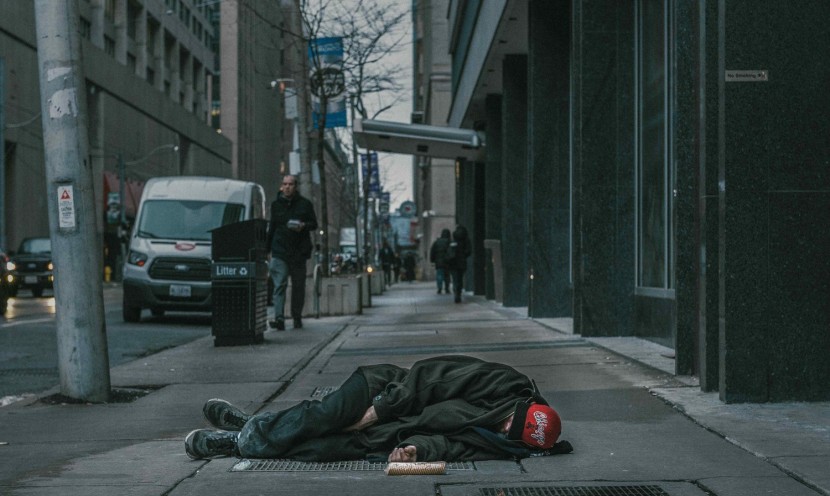
Homeless families are expected to increase in the coming weeks as Americans remain to experience economic unrest, and the eviction moratorium will expire later this month.
READ: States File Monopoly Suit Against Google Over Alleged Illegal Deal With Facebook
Vital housing assistance may not be accessible to families that don't meet the U.S. Department of Housing and Urban Development's description of "homeless," including those who had to "double-up" or move in with other households.
After spending two months at a homeless shelter in Florida, Kristie Filippello, 32, and her three children, 6,8, and 11 relocated to Cincinnati. They ended up living in a relative's one-bedroom apartment for nearly two months, receiving their domestic violence victim's compensation fund in October.
Filippello's housecleaning business was forced to shut down after the financial stress of unpaid bills due to the pandemic, which led to abuse from her two-year live-in partner.
Filippello said, "The coronavirus was spreading, so being in a shelter was not good, plus I have daughters and a shelter is not the right place for any family to be unless it's an absolute last resort." She added that she would go to a motel rather than returning to a shelter.
She tried to get a government rehousing program. Still, She was denied since she lived in a home with a family member even if they were only screened off a portion of their relatives living room with a sheet divider for their privacy and remote schooling.
ALSO READ: Report: CCP has Links to Australia's Largest Chinese Media Outlets, Connected to Beijing's United Front
Filippello shared, "When it comes to trying to find assistance, they don't consider me homeless because I'm not literally on the street and am in someone's home," and added, "I feel like I'm in just as much need right now, but very few doors are open for me."
Doubling up is when an individual or family lives with another household temporarily or shuffles indefinitely between homes, often because of economic need. People who are doubled up are not considered homeless by HUD and are not allotted individual assistance such as rapid rehousing, housing experts said.
HUD defines "homeless" as individuals and families who do not have a "fixed nighttime residence," including those living in shelters or on streets only. Those who are doubled up are those bouncing between motels that do not fall under this umbrella.
While this omission has instigated hardships long before the pandemic, rising health concerns, and dwindling shelter spaces have hastened efforts to increase housing aid to address the doubled-up population, which is expected to swell over the next year.
READ MORE: This Day In History: The Tragedy of the Pan Am Flight 103 Bombing at Lockerbie Scotland
The legal director for the National Homelessness Law Center, Eric Tars, said, "With the expiration of the CARES Act moratorium and the expiration of the unemployment insurance benefits, we know that families are already making difficult choices. Even with the CDC eviction moratorium in place, landlords are already filing evictions and using threats to get people to leave." He is referring to the Centers for Disease Control and Prevention. "If you have to choose between paying the rent and eating, people are choosing to stop paying rent, and to move in with friends and family, even though it's not where they wish they were."
Further, Tars said, "What's more, mixing families is risky during the pandemic." He added, "Being doubled up is an "extremely temporary situation" meant for a short period, in part because the individual or family has no legal right to space and can be asked to leave at any time."








